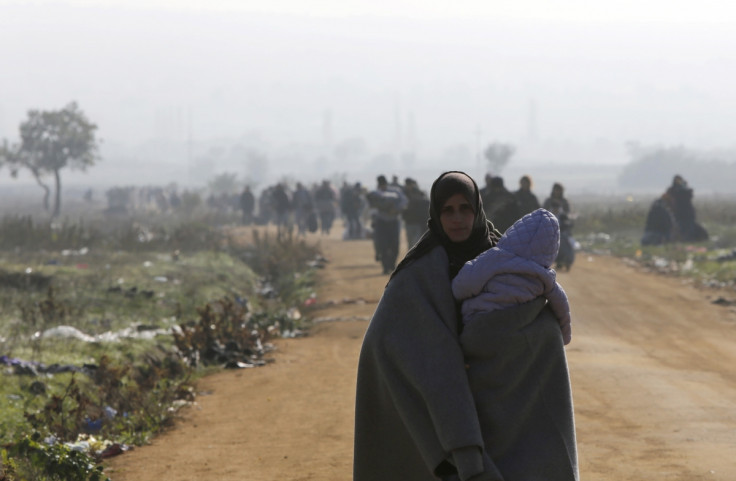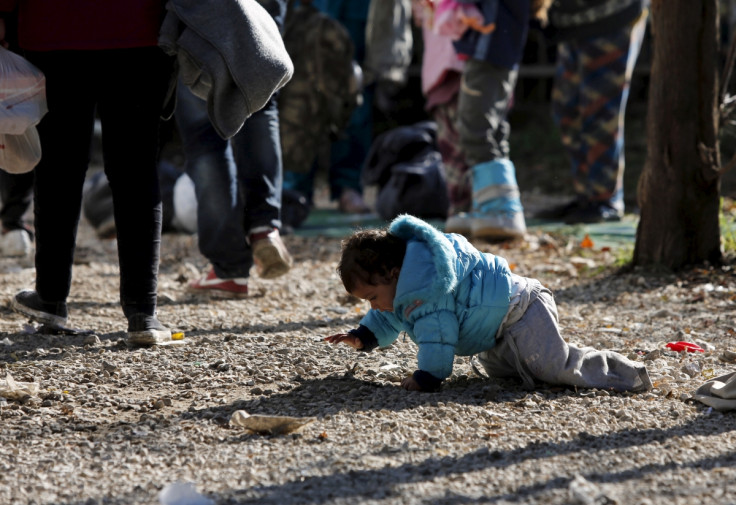Bulgarian police 'stole food and water' from hundreds of refugees crossing into Europe

The Bulgarian police has been accused of robbing and physically abusing migrants and refugees as they entered Europe, a damning new report claims.
Roughly 300 people, crossing via Bulgaria to move on for seeking shelter in other European countries, arrive every day in Dimitrovgrad, a little town 4km from the Serbian-Bulgarian Border and 60 miles away from Sofia, the capital of Bulgaria. They have to register at a camp that is managed by the Serbian border police.
Hundreds of these refugees, mostly from Afghanistan, Syria and Iraq, spoke about tales of extortion, robbery, physical violence, threats of deportation and police dog attacks suffered in the hands of law enforcement officials when they entered Europe through Bulgaria.
Human rights abuse of refugees
"The dramatic and shocking ill-treatment of people fleeing conflict and poverty is totally unacceptable, particularly in an EU member state," Nikolina Milic, from the Belgrade Centre for Human Rights, which conducted the interviews, said. "We are calling for an independent investigation into the incidents in Bulgaria, and we call on the Bulgarian government to condemn these human rights abuses in the strongest terms possible."
Stefano Baldini, Oxfam's director for South East Europe, who commissioned the report, insisted refugees arriving in Europe have the right to protection. "They should not have to experience brutality and xenophobia," he said. "In light of the reported abuses, the European Union has to intervene and take concrete action to protect basic human rights within its borders."
Police stole 'food and water' from refugees
The report stated the majority of the abuses took place at the Serbia-Bulgaria and the Turkey-Bulgaria borders, where on 15 October an Afghan refugee was shot dead.
A group of a dozen refugees witnessed a police officer holding a gun to a refugee's forehead, while others lay on the ground, apparently unconscious. Frightened by the situation, they said they fled and tried to hide, but police officers caught up with the group, beat them, took their valuables including food and water.
According to the refugees, the Bulgarian police forced them to give up their valuables in order to not be detained for their illegal presence in the country. Later, close to the Serbian border, the refugees said police officers released dogs on them, and gun shots were heard. Seven people from the group went missing and the refugees said they have not had contact with them since.

"The group is convinced that the smugglers cooperate with the Bulgarian police and even claim to have seen them exchange money," the report stated.
While an Afghan man in his twenties alleged he had been pistol-whipped by the police, two Afghan men were also shot at to prevent their escape. The men confirmed the shots had wounded two.
In another incident, six Bulgarian police officers threatened a large group of minors with deportation with guns and dogs to force them back behind the Turkish border. While 17 refugees from their group managed to escape, 15 were detained and one was shot in the leg.
Calling on authorities to investigate abuses
All interviewees, except those who said they had not had any contact with the police, reported abuse in Bulgaria. Both Oxfam and the Belgrade Center for Human Rights call on the Bulgarian authorities "to investigate these abuse allegations and to ensure that officials respect refugees' human rights in their border operations".
Other human rights organisations, such as the Helsinki Committee for Human Rights in Sofia, have confirmed similar accounts from refugees and migrants travelling through Bulgaria.
According to UNHCR data, since the beginning of 2015, more than 792,883 people have tried to reach Europe through various routes (the Western Balkan route and the Mediterranean route), and more than 3,440 people have lost their lives during the journey.
Many refugees choose the route through Bulgaria, as opposed to the one through Greece and Macedonia, as it is the closest way to reach their final destination, and because, some said, smugglers asked for less money to take them.
© Copyright IBTimes 2025. All rights reserved.






















